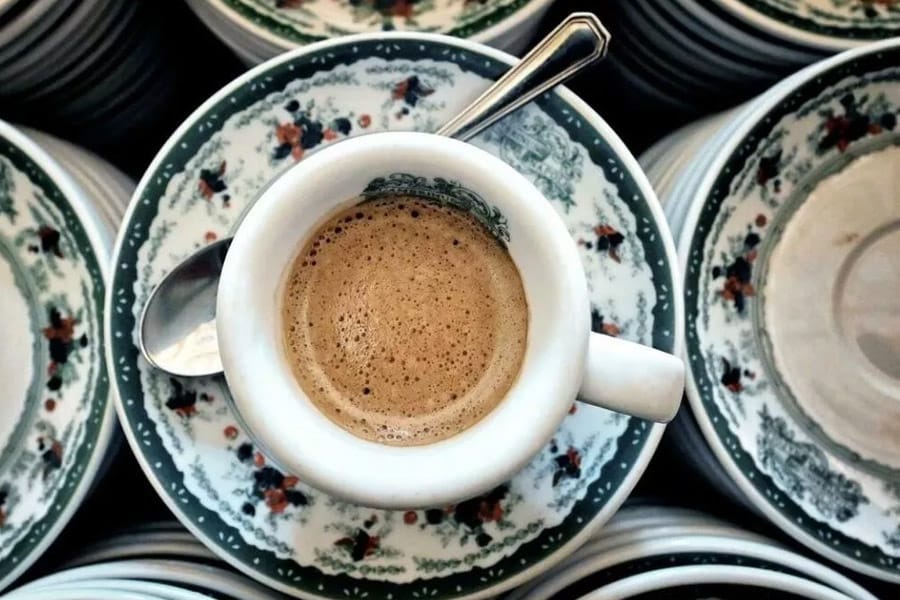
Italy woos UNESCO with 'magical' espresso coffee rite
Italy's espresso is a prized social and cultural ritual the country considers a national heritage worthy of UNESCO status
 A picture taken on February 13, 2022 shows a cup of espresso coffee at the historic Gran Caffe Gambrinus in Naples, Italy. (Credits: Ella Ide)
A picture taken on February 13, 2022 shows a cup of espresso coffee at the historic Gran Caffe Gambrinus in Naples, Italy. (Credits: Ella Ide)
Italians knock back some 30 million espressos a day, from Venice to Sicily, in porcelain cups or little glasses, with or without a splash of milk — and see each one as a gesture of friendship.
"The espresso is an excuse to tell a friend you care," says Massimiliano Rosati, owner of the Gambrinus cafe in Naples, which helped prepare the bid for a place on the UN's list of the world's intangible heritage.
"They are drunk every day, at any hour. It's a shared moment, a magical moment," he told AFP.
The gleaming machine behind the marble counter clanks and hisses as the barista tamps the ground coffee into the portafilter, clicks it into place and flicks a switch to shoot near-boiling water through it.
'Flowers, fruits, chocolate'
To be the real deal, the espresso has to have a "round, substantial and velvety" taste and "hazel-brown to dark-brown foam, characterised by tawny reflexes", according to the Italian Espresso Institute.







